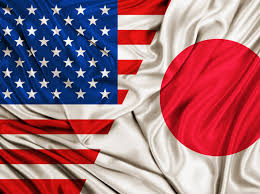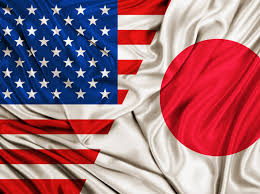
The aim of the protectionist trade policies taken by the United States government under President Donald Trump is to remove trade barriers for American companies and create a more level playing field for US firms, said the United States ambassador to Japan, as he defended his country’s trade policies on Friday.
“The United States is the most open major economy in the world,” Ambassador William Hagerty told reporters at the Japan National Press Club.
“Japan and other countries have benefited greatly from that openness. So I want to make sure that we don’t mistake our efforts to achieve reciprocity for protectionism.”
The trade relations with some of the closest trading partners of the US have been soured by the U.S. President Donald Trump – particularly China, as well as a number of former partners and alias in trade in Europe and North America.
Trade surplus that various trading partners have with the US has been criticised by Trump since the Presidential election campaign. And Japan is no exception. Trump has openly expressed his displeasure about the $69 billion trade surplus hat Japan had with the United States in 2017. About two thirds of the exports to the US form Japan is accounted for by the auto segment. The US now wants a bilateral trade agreement to reduce what Trump calls the trade imbalances.
Japan has been severely criticised by trump for its trade policy in relation to the auto industry where, he alleged, that Japan delivers out unfair treatment to the US by exporting millions of Japanese cars into the US while creating higher trade barriers for export of American cars and other vehicles into its own domestic market. The same is applicable for farm products from the US.
However, Japan has repeatedly refuted those allegations and has repeatedly said that it follows an open market policy for its manufactured goods market segment. But at the same time, Japan has also conceded that it does provide protection to those products that are politically sensitive.
“I think there are opportunities to open Japan’s market in a way that will be good for Japanese consumers, that will also be good for American businesses,” Hagerty said.
At a meeting in September between Trump and Japanese Prime Minister Shinzo Abe, both the leaders had agreed to initiate trade talks for arriving at a trade deal. It is expected that the meetings would begin early next year.
While declining to comment on the issue of whether the US would demand a cap on importing of Japanese vehicles into the country, Hagerty said that the goals for the negotiations were still being finalised by saying Trade Representative Robert Lighthizer’s team.
“The more you can produce in the market where you sell, the closer you are to your customer, and the more you de-risk your business model by taking significant currency risk off the table,” Hagerty said.
(Source:www.reuters.com)
“The United States is the most open major economy in the world,” Ambassador William Hagerty told reporters at the Japan National Press Club.
“Japan and other countries have benefited greatly from that openness. So I want to make sure that we don’t mistake our efforts to achieve reciprocity for protectionism.”
The trade relations with some of the closest trading partners of the US have been soured by the U.S. President Donald Trump – particularly China, as well as a number of former partners and alias in trade in Europe and North America.
Trade surplus that various trading partners have with the US has been criticised by Trump since the Presidential election campaign. And Japan is no exception. Trump has openly expressed his displeasure about the $69 billion trade surplus hat Japan had with the United States in 2017. About two thirds of the exports to the US form Japan is accounted for by the auto segment. The US now wants a bilateral trade agreement to reduce what Trump calls the trade imbalances.
Japan has been severely criticised by trump for its trade policy in relation to the auto industry where, he alleged, that Japan delivers out unfair treatment to the US by exporting millions of Japanese cars into the US while creating higher trade barriers for export of American cars and other vehicles into its own domestic market. The same is applicable for farm products from the US.
However, Japan has repeatedly refuted those allegations and has repeatedly said that it follows an open market policy for its manufactured goods market segment. But at the same time, Japan has also conceded that it does provide protection to those products that are politically sensitive.
“I think there are opportunities to open Japan’s market in a way that will be good for Japanese consumers, that will also be good for American businesses,” Hagerty said.
At a meeting in September between Trump and Japanese Prime Minister Shinzo Abe, both the leaders had agreed to initiate trade talks for arriving at a trade deal. It is expected that the meetings would begin early next year.
While declining to comment on the issue of whether the US would demand a cap on importing of Japanese vehicles into the country, Hagerty said that the goals for the negotiations were still being finalised by saying Trade Representative Robert Lighthizer’s team.
“The more you can produce in the market where you sell, the closer you are to your customer, and the more you de-risk your business model by taking significant currency risk off the table,” Hagerty said.
(Source:www.reuters.com)





